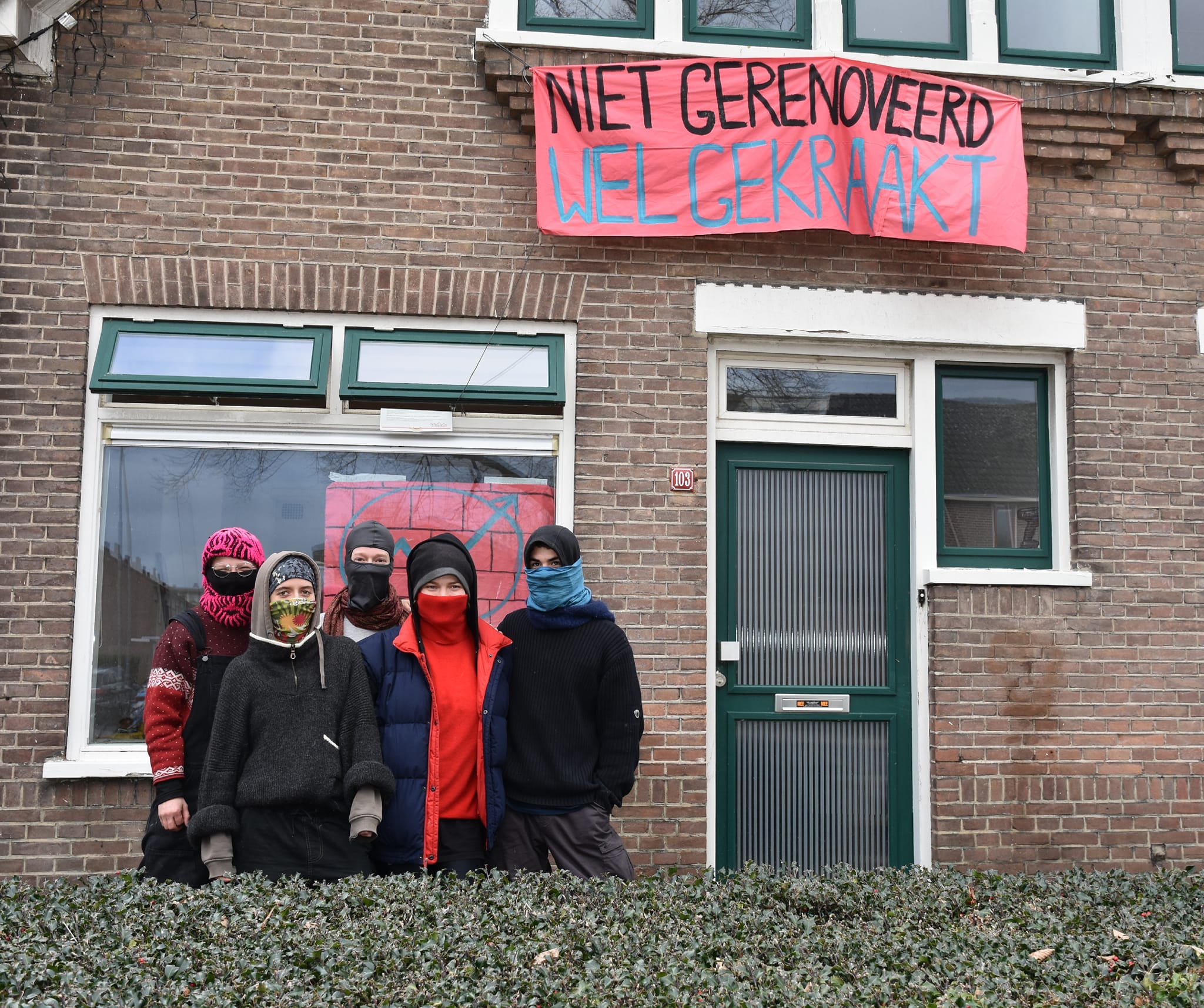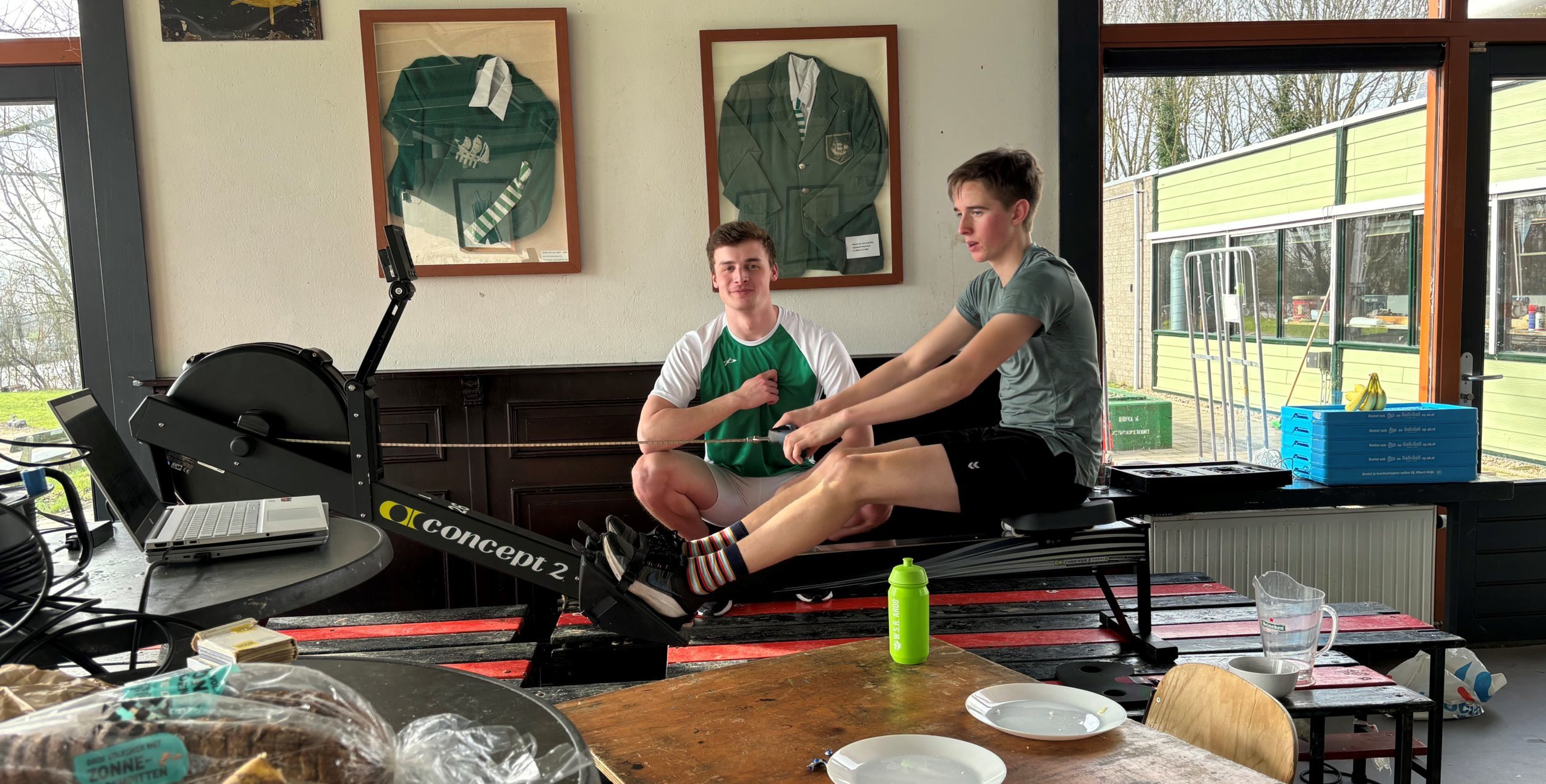Many students find it hard to talk about mental issues, whereas talking can often help. It can even be life-saving. That is why student society Ceres organized the ‘Dare to Share’ symposium in the Grote Kerk in Wageningen.
If you have suicidal thoughts or are worried about someone else, talk about it. The 113 suicide prevention helpline is staffed 24/7. You can phone 0800-0113 or chat via 113.nl. It’s free of charge and completely anonymous. The site has other options for help, such as coaching and therapy. More options for help? Scroll down.
Students would normally be drifting in up to a quarter of an hour after the start, but this time the church was already packed long before the symposium was due to begin. The audience included 350 students as well as confidential counsellors, social workers and representatives of the university and the municipality — including the mayor, Floor Vermeulen. ‘When we started preparations for this symposium, we hoped the circumstances would be different,’ says Ceres president Quirine Kerpen as she addresses the audience. Earlier this week, a first-year took their own life. The symposium went ahead anyway at the request of their friends and family. ‘Not to turn a blind eye to the pain but instead to start a conversation about this issue.’
The evening began with a plea from clinical psychologist Maryke Geerdink of the 113 Foundation, known for its helplines for people with suicidal thoughts. ‘Don’t go around keeping all your worries to yourself. It’s not easy to talk to someone about suicide, but opening up does help.’
There is something else she wants to impress on the audience. ‘Family and friends often have feelings of guilt: if only they’d said this or done that. But by the time someone takes that decision to try and end their life, an awful lot has already happened. All kinds of factors play a role. So there is never just one reason or cause. That is important because it means that you as an individual are never responsible for someone else’s decision to take that step. Feeling guilty won’t help you. What can help is sharing those guilty feelings with others.’
Look after yourself
If someone opens up about their suicidal thoughts to you, they might want you to keep it a secret, says Geerdink. ‘But you can only look after someone else properly if you look after yourself first. Don’t try and shoulder that burden entirely on your own. Confide in someone, preferably an adult. Together, you will be better able to work out how to help.’
A question from the audience: what words of support can you say to someone struggling with depressive thoughts? Geerdink: ‘Say something like: it’s good that you’re sharing this with me. Then the other person knows they can come to you. You don’t have to have a solution for their problems. Just listening and not passing judgement is worth a lot.’ Geerdink admits it can be tough. ‘But being there for someone can also feel good.’
Growing up
Frederieke Vriends is the director of MIND Us, a charity that wants to improve the mental health of young people. ‘Growing up isn’t easy,’ she says. ‘Your brain goes through a development process with all kinds of choices. What do I want to do as a job? Who am I? Why am I here?’
While that search for your identity (and the associated mental struggle) is nothing new, in surveys more and more young people say they experience a lot of stress. Vriends thinks smartphones are a factor here. On average, young people spend 6.5 hours a day on screens, she says. ‘That is at the expense of sleep, social life and exercise. If you’re feeling miserable and you share this with a friend, they’ll do everything they can to make you feel better. But if you search for something about your miserable feelings on social media, their algorithms will make sure you get more of the same. That is not healthy.’
She closes with a call to look after yourself and the people around you. ‘Take time for your mind and your heart. Look after your body: get enough sleep, eat healthily and do some exercise. And seek out other people. We are social creatures, so support one another. And make sure you have something to look forward to.’
Jan‘s story
WUR student Benjamin and Quirijn (both 22) talk about their brother Jan, the third triplet, who studied Veterinary Science at Utrecht. ‘Anyone who knew Jan will remember his huge grin. He was a very dedicated and caring person. He was a typical student who wanted to have a good time with his friends and was always the first person to stop at a bar.’ In 2022, he unexpectedly took his own life. ‘All of a sudden there’s an empty chair at the table. How can someone who seemed to be so cheerful make that choice?’
The brothers urge everyone in the audience to ask how someone is really doing more often. ‘Not just when they’re mourning a loss but also in everyday conversations with friends and family. Someone might seem so upbeat on the outside but still be struggling with all kinds of problems inside.’ Whereas you can always talk to someone, they say. ‘That could be a friend or a relative, or even a psychologist, student counsellor, study adviser or other professional. Anonymously if you want.’
‘We’re telling our story in the hope we can give you some pointers. Don’t be afraid to ask someone how they are really feeling. Because sometimes you need that question to be able to share your problems.’
It helps to ask for help
Need help immediately?
113
If you have suicidal thoughts or are worried about someone else, talk about it. The 113 suicide prevention helpline is staffed 24/7. You can phone 0800-0113 or chat via 113.nl. It’s free of charge and completely anonymous. The site has other options for help, such as coaching and therapy.
Victim support
If you have experienced something really unpleasant, it’s good to talk about it. The staff at Victim Support are trained to be able to help. They can also put you in contact with fellow sufferers. You can reach Victim Support by calling 0900-0101.
WUR
WUR also has people who can help you. Students can find information on the support offered by WUR by going to wur.nl and searching for ‘student guidance‘. Employees can get support from the occupational social workers (see the intranet for an overview; click support & mediation).
Online training courses
Zero Suicide Alliance courses
You can only know if someone has suicidal thoughts if you ask them. But how do you do that? Zero Suicide Alliance offers free online training courses to help people recognize suicidal thoughts, ask the right questions and help someone get appropriate support.
Be There Certificate
How do you recognize when someone is not doing well mentally? How can you be a supportive conversation partner? And how do you help them? Be There Certificate is a free online course where you can learn how to support someone who is struggling.

 During the symposium, WUR student Benjamin and Quirijn (both 22) talked about their brother Jan, the third triplet, who studied Veterinary Science at Utrecht and unexpectedly took his own life in 2022. Photo Guy Ackermans
During the symposium, WUR student Benjamin and Quirijn (both 22) talked about their brother Jan, the third triplet, who studied Veterinary Science at Utrecht and unexpectedly took his own life in 2022. Photo Guy Ackermans 

